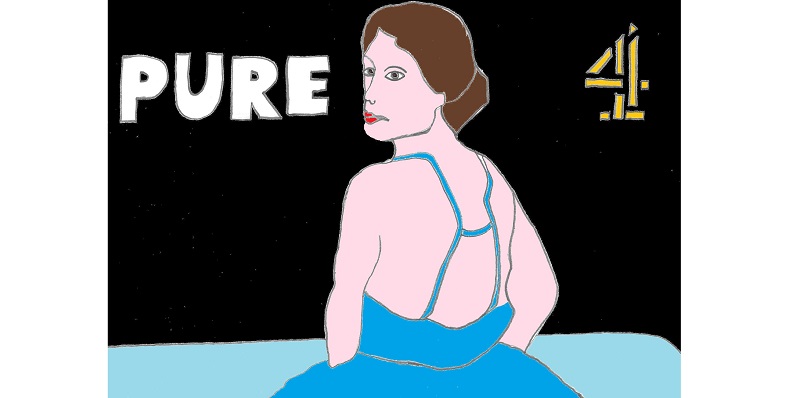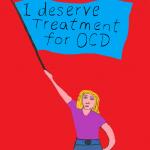PURE Review
February 14th 2019
A guest post, written by Maria Woodford
When I first heard about Channel 4’s new drama “Pure”, I felt a peculiar mixture of excitement and unease. Having battled OCD throughout my childhood and teens, this show promised to be the reference point for my illness that my younger self had lacked. After years spent recycling fears and obsessions, I was desperately seeking proof that somewhere, anywhere, there were other people like me.
When “Pure” arrived, I had clung onto this hope for so long that the reality of a OCD narrative felt intimidating. What if I was disappointed? What if it simply poked fun at the illness, disregarding entirely the agonising potency of ruminations?
I approached the programme with a degree of caution – but much to my relief, it did not disappoint. Instead, I was a met with a story that brought my own to life. “Pure” deftly manages to make light of its topic without trivialising it, spying the humour in the absurdity of OCD thoughts while never undermining their destructive power. There is something oddly comic about the sudden flashes of perverse imagery, yet they still serve the purpose of unsettling their audience. The visuals simulate the nature of obsession, forcing you to look when you want to look away.
I instantly recognise Marnie as a woman tipping the balance between coping and dysfunction. She is well enough to find her way from Scotland to London, but ill enough that her ruminations infringe on her abilities to converse and perform sexually. She is well enough to have completed her degree, but ill enough to have found herself back in her hometown, disillusioned by her former dreams of being a writer. The unnerving lack of stability feels incredibly genuine to me, having spent years on the same seesaw between sick and well.
Marnie’s confusion – that her intrusive thoughts must signify something deeper about her own psyche – epitomises the ultimate OCD struggle: “I think this, so it must mean something.” Watching her constantly second guess herself reminds me of many days spent turning over the same questions. Why am I thinking this? Do I think it because I believe it?
“Pure” is the first time I have ever seen my likeness on screen. Though my own intrusive thoughts are rarely of a sexual nature, I feel an overwhelming amount of empathy for Marnie’s story. After all, it is never the content of the thoughts themselves that matter, but the levels of distress, self-loathing and despair that they cause.
It is rare that we encounter a story where mental illness is not sensationalised for shock factor, or simply a diluted subplot. Characters with mental health problems are not expected to make for good protagonists, because rather than seeing the strength in their stories, we are constantly highlighting their weaknesses. This symbolic annihilation contributes to a persistent stigma – that people with mental illness are inherently flawed, existing only on the fringes of ordinary society.
But this is not a story where mental illness is exiled to attics and asylums. It exists in bedrooms and bathrooms and clubs and coaches. It exists in the same city where I grew up. This is a story where OCD not only occupies, but dominates, the foreground of the narrative. It’s every bit as awkward and graphic as the illness itself.
“Pure” demands that you feel discomfort, but for me it provides the opposite. Knowing that this show will open up conversations about OCD, I am able to shed the shame that, in Marnie’s words, “there’s something wrong with me.”
___________________________________________________________________________________________________________________
You can catch the “Pure” boxset on All4. Please be aware that the programme contains graphic, sexual images and adult language which may not be suitable for younger viewers.







